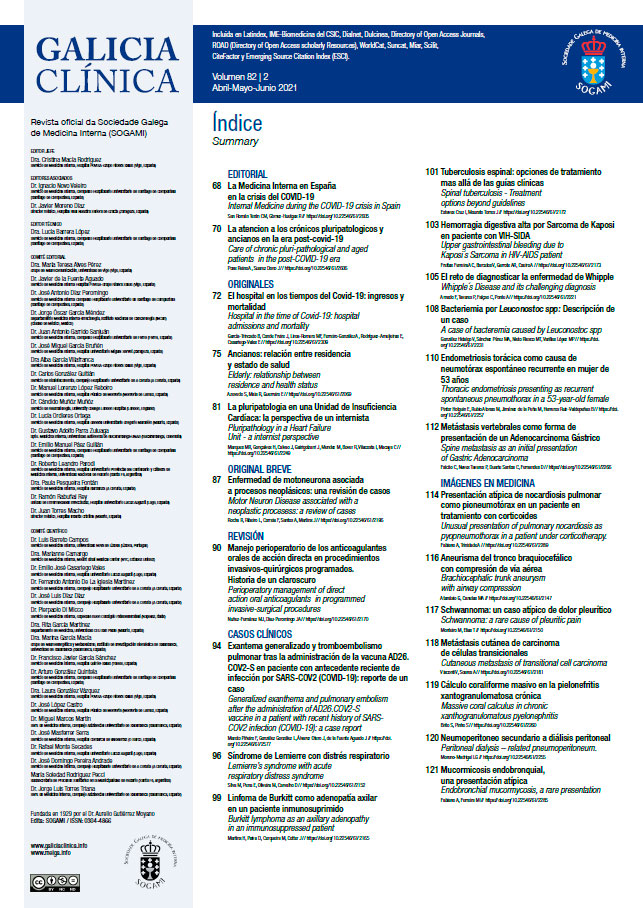Abstract
Introduction: The European population is aging, for every 100 young people there are 128 elderly. There is a decrease in the number of elderly people living in their family environment. The main objective of this study is to identify the differences in the general health status of the elderly according to their residence (home, nursing home, host family or national integrated network of integrated care (NINIC).
Material and Methods: This is a retrospective observational study, using a sample of 254 elderly patients admitted to the Internal Medicine Service.
Results: Of the patients studied, 78,7% lived at home/with relatives, 15,4% in nursing homes, 3,15% in host families and 2,75% in NINIC. Age ranged from 65 to 99 years, with a median of 80 years (SD=7,97). Patients from their homes were more independent/mild dependence (Fisher’s exact test=60,9, p<0,00), although there were no significant differences in the number of comorbidities (H(3)=1,05, p=0,788). However, nursing home and NINIC patients had more neurological pathology (Fisher’s exact test=14,9, p=0,002). There were no statistically significant differences in the number of medications usually taken, although nursing home patients had more potentially inappropriate medications (H(3)=40,5, p<0,001) and potential prescribing omissions (H(3)=13,8, p=0,003). Patients at home had fewer rehosts (Fisher’s exact test=8,8, p=0,026). There were more intercurrences (Fisher's exact test=19,0, p<0,001) and more deaths at 6 months after discharge from nursing home and host families (Fisher's exact test=19,3, p<0,001).
Discussion and Conclusion: In a population less attended by families, these differences in relation to their dwelling places are paramount.
© 2021 Galicia Clínica.
Complete article | Pdf article


